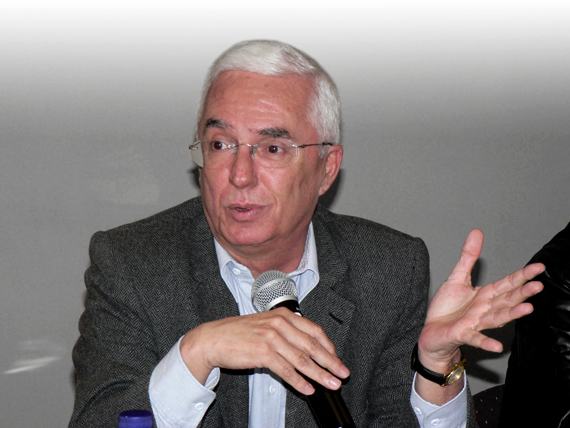|
Colombia’s
current government implements economic policies that endanger the food security
and sovereignty of the population, favoring the interests of large national and
transnational corporations. “We must urgently adopt strategies aimed at
producing food inside the country and reverting these dangerous dynamics that
put the future of the continent at risk,” Colombian senator, Jorge Enrique
Robledo, told Sirel.
-What is your assessment of the current state of food security and sovereignty (FSS)
in Colombia and the rest of the continent?
-Colombia
is facing a very serious problem, which is also affecting many other countries
in the region.
Despite being a
country with enough land, farmers, and water to become self-sufficient in food
supply, neoliberal policies have turned the country into a food importer.
We’re importing 10 million tons of foodstuff -that’s more than 30 percent of our
entire agricultural production, which means we’re buying a major part of the
country’s staple diet abroad. And these are goods that could easily be
produced domestically.
Our food security and sovereignty are at risk because transnational corporations
and countries that follow the neoliberal model are forcing us to accept
treaties, like the free trade agreements (FTA), and an agenda outlined by
the World Trade Organization (WTO).
|
We’re importing 10
million tons of foodstuff -that’s more than 30 percent of our entire
agricultural production. |
-What are the possible implications of the steady deterioration of FSS?
-Food sovereignty and food security are based on a very clear concept:
food is an essential good, because a country can do without many goods, but it
cannot do without food. Without food, it disappears.
In this sense, the concept of FSS is so important and crucial that we
need to focus on where food is produced.
Free trade defenders argue that it is irrelevant where food is produced, and
what matters are trade flows and the availability of resources to purchase food.
They don’t conceive, for example, of
a situation in which
economic resources are available but there is no food.
For us, FSS should be understood as a national problem. That means that
each country should direct efforts to produce and guarantee the staple diet of
its population, avoiding the concentration of production in just a few places in
the world.
-Which sectors of society should guarantee FSS?
-I think a
joint effort by the business sector and agricultural wage earners, peasant
farmers, and indigenous groups is necessary. The State must also necessarily
support that effort
by making instruments available.
|
We’re forced to
consume agrofuels produced at high costs, in exchange for saving oil
and selling it cheap to the United States. |
-How can the emergence of agrofuel crops affect FSS?
-In Colombia, like in many other countries, African oil palm and
sugarcane crops have expanded to supply agrofuel production.
These crops pose a
problem when they replace food crops, which is the policy that the United States
seeks to impose on Latin American governments.
That policy is absurd.
First we need to
produce food and guarantee FSS, and only then can we think about expanding agrofuel
crops.
Behind this production is also a domestic business that is being imposed on us:
we are being forced to consume agrofuels produced at high costs, in exchange for
saving oil and selling it cheap to the United
States.
-Are the people standing up against this situation?
-The
policy of governments under the influence of Washington involves sacrificing FSS,
making the country dependant on food imports, and, thus, benefiting
transnational corporations.
This situation is getting increasingly worse,
but there is also a
growing resistance to this model, with the people demanding policies that
guarantee FSS.
-What do you think of the activity that the IUF’s Latin America Executive
Committee is carrying out in Colombia?
-For me it has been an honor to present this issue at such an important event as
the meeting of the IUF’s Latin American Executive Committee. I think that
the organizations represented at this meeting are playing a key role alongside
workers and the people in general.
 |